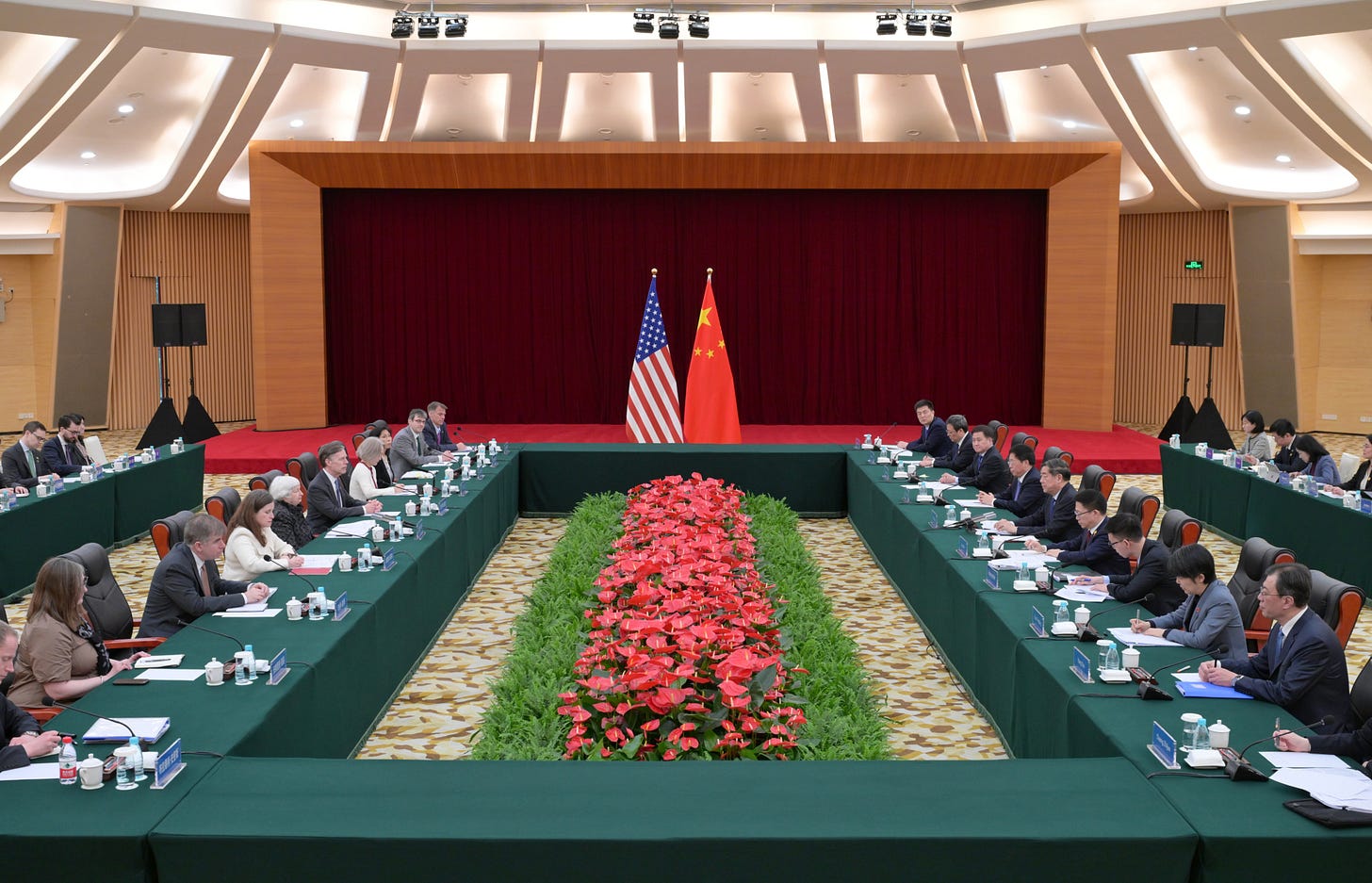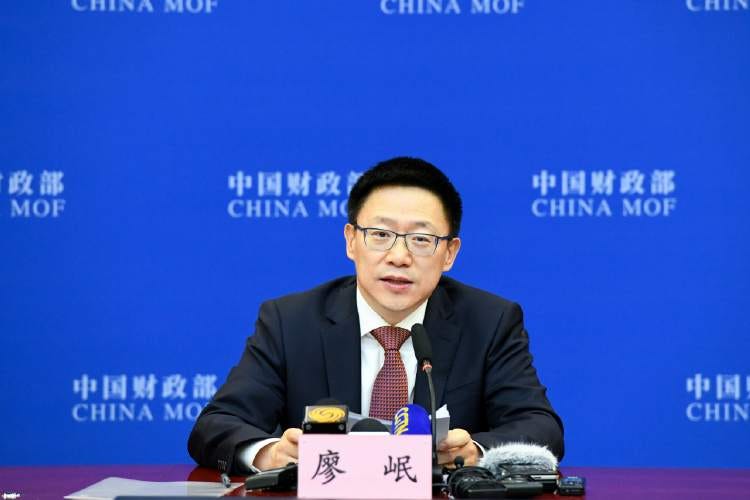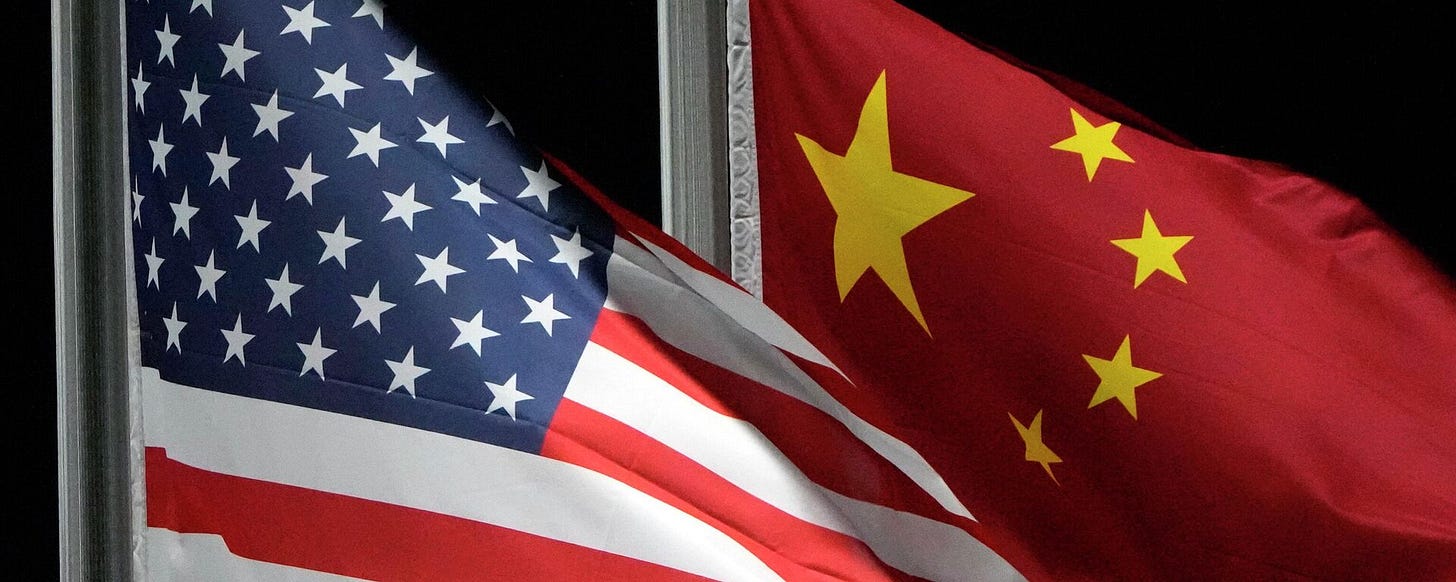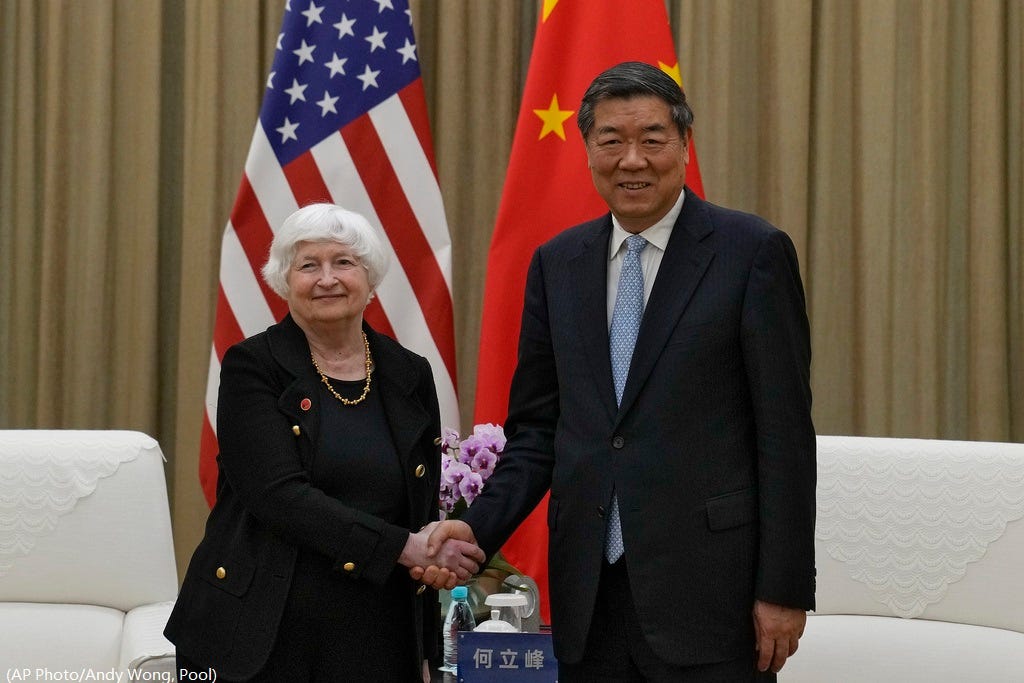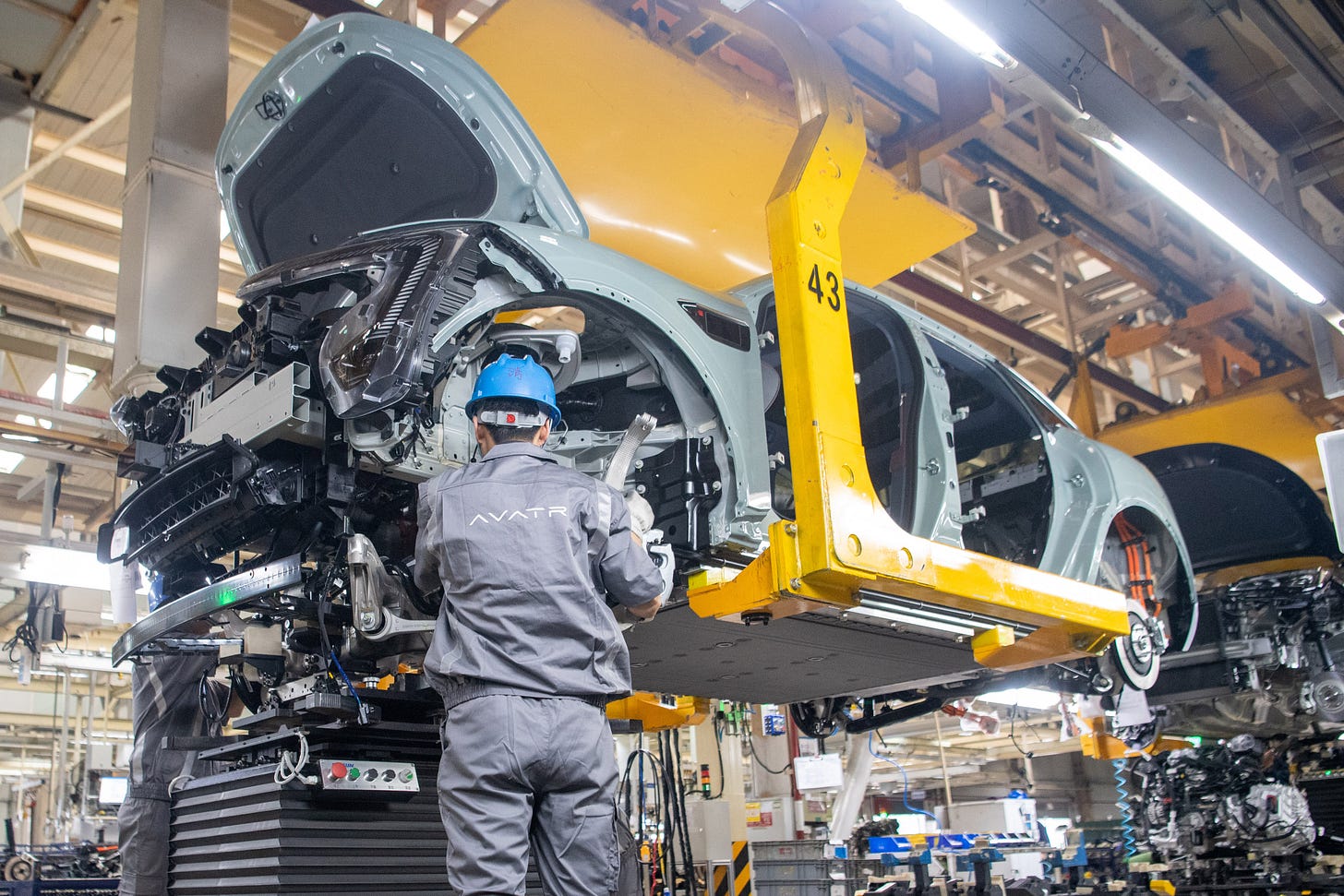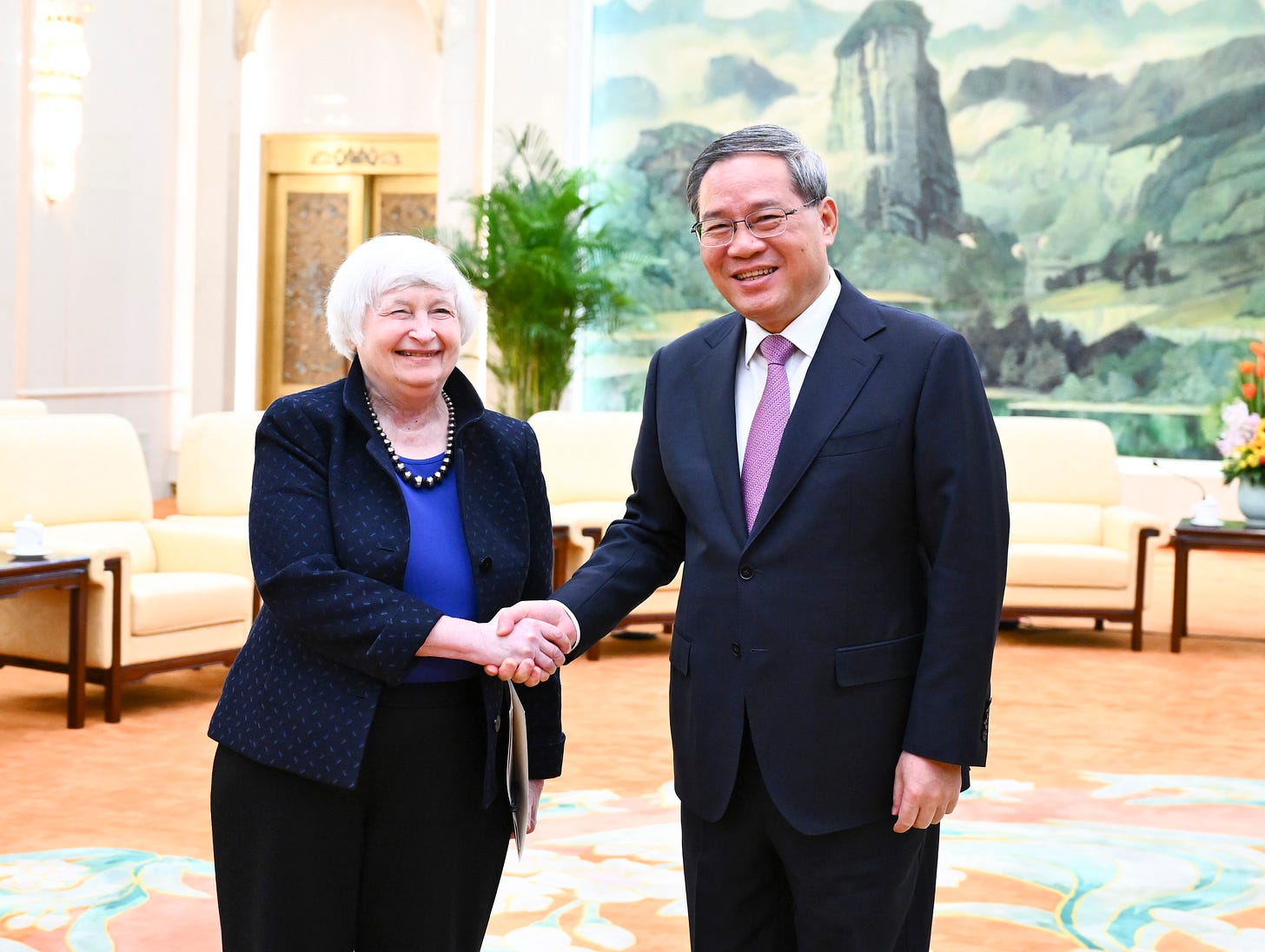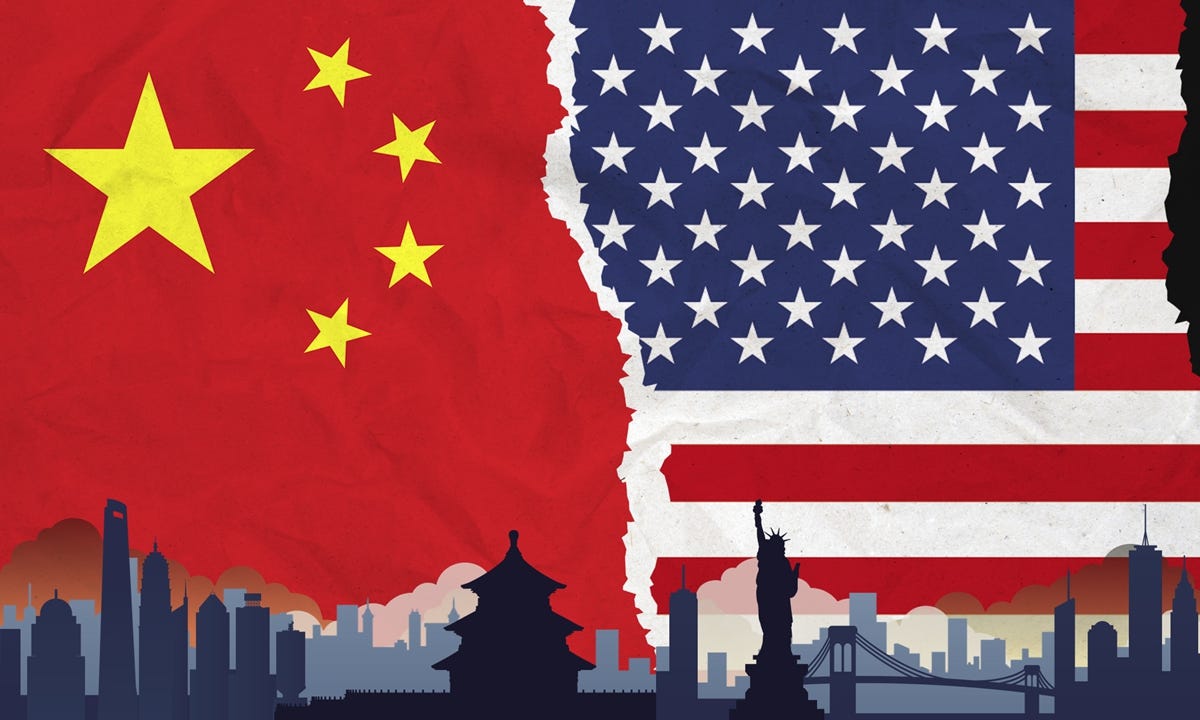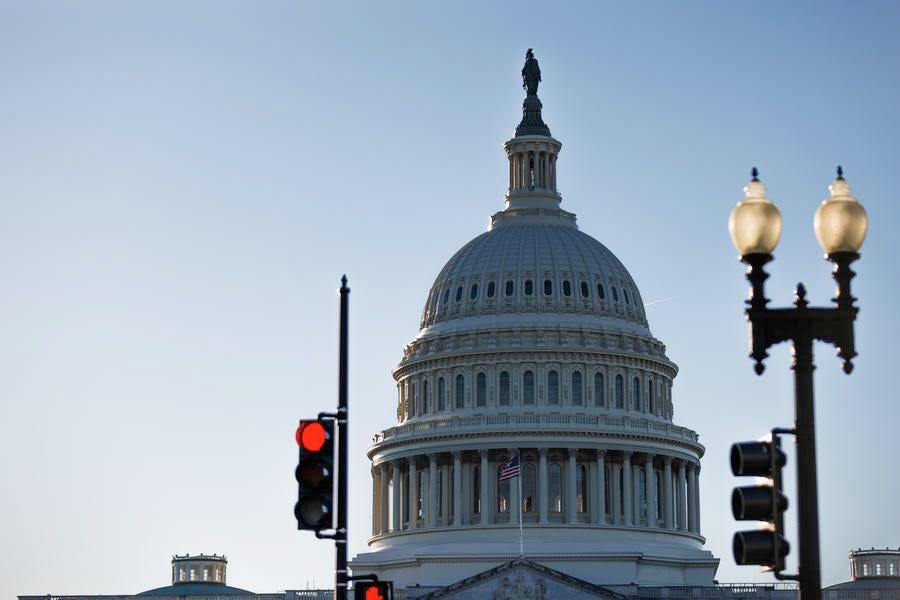Dialogues, actions matter to cement China-US economic relations
U.S. Treasury Secretary Janet Yellen is the first U.S. Cabinet member to have made a visit to China this year. This visit came after Chinese President Xi Jinping held a phone talk with U.S. President Joe Biden upon the latter’s request.
What have been discussed during Yellen’s stay in China? What is China’s policy stance? This brief summary of Chinese media reports may offer a glimpse into the answers.
Key outcomes
At a briefing in Beijing on April 8th, Liao Min, the Chinese vice minister of finance, presented the outcomes of recent high-level dialogues between Yellen and Chinese officials on April 4 to 9.
Both China and the United States have reaffirmed their commitment to the three-point agreement established during the San Francisco discussions last November, which includes enhancing communication, averting economic decoupling, and addressing shared challenges. Additionally, new agreements were reached:
Firstly, the finance ministries of both nations will spearhead discussions aimed at promoting balanced growth within their respective economies and globally, under the auspices of the China-US Economic Working Group.
Secondly, the People's Bank of China and the U.S. Treasury Department will lead ongoing dialogues on financial stability, sustainable finance, and combating money laundering, within the framework of the Financial Working Group.
Significance of China-US deepening dialogue, cooperation
Liao highlighted the importance of China and the US, the world's two largest economies, deepening dialogue and cooperative efforts in economic and financial policies. This collaboration is crucial for ensuring the stability of both countries' and the global economy, especially in fostering post-pandemic recovery. China is committed to maintaining an open and constructive approach towards this cooperation.
Economically, both nations have recognized the benefits of engaging in thorough discussions on achieving balanced growth domestically and globally. This aligns with China's goals for economic transformation and high-quality development. The complementarity of the Chinese and American economies underscores the mutually beneficial nature of their economic and trade relations, with both parties keen on enhancing economic exchanges to stabilize bilateral relations and improve the prosperity of their businesses and citizens.
On a multilateral front, given the global economic challenges of high debt, inflation, interest rates, and low growth—which particularly impact emerging markets and developing countries—China and the US have committed to collaborate under platforms like the G20. Their focus includes managing developing countries' debts and reforming international financial institutions, aiming to address global challenges together.
Financially, the agreement to pursue ongoing dialogue and cooperation on financial stability, sustainable finance, anti-money laundering, and counter-terrorism financing underlines the commitment to joint action. Collaborations through the Financial Working Group and the G20 are intended to project a unified front in tackling global issues, crucial for maintaining global financial stability and supporting environmentally sustainable development.
Looking ahead, China is eager to translate these consensuses into tangible cooperation with the US through economic and financial working groups, continuing to foster a positive trajectory in China-US economic relations.
Key points discussed in the multiple rounds of talks in Guangzhou
Economic Briefings: The Chinese delegation provided insights into China's economic health and policies, underlining its sustainable growth and key contributions to global economic stability. China reaffirmed its commitment to reform and opening-up, detailing plans to deepen reforms, address development bottlenecks, and enhance its business environment to support domestic and international companies, including those from the U.S.
U.S. Economic Overview: The U.S. shared details on its macroeconomic situation, touching upon the labor market, inflation, financial stability, and fiscal and monetary policies.
Global Challenges: Both nations discussed handling debt in developing countries, reforms in major global financial institutions, and cooperation in anti-money laundering and anti-terrorism financing, agreeing to continue collaborative efforts through multilateral channels.
National Security and Trade: The discussions recognized each country's right to national security while cautioning against overly broad interpretations that could disrupt normal trade, investment, and the global supply chain. China expressed serious concerns over U.S. sanctions and restrictions on Chinese firms, urging the U.S. to cease such actions and emphasizing the detrimental impact on both Chinese and U.S. businesses and citizens.
Consensus Outcomes: The talks reaffirmed a three-point consensus on enhancing communication, preventing decoupling, and tackling shared challenges, established during the San Francisco discussions. New agreements included leading collaborative efforts on balanced economic growth and financial stability through the China-U.S. Economic and Financial Working Groups.
Future Steps: Following the leadership's directives, both sides plan to further the dialogue and implement agreed consensus through the working groups, with upcoming meetings scheduled for mid-April at the World Bank/IMF Spring Meetings in Washington, D.C.
This summary captures the essence of the discussions, focusing on cooperative efforts, economic policies, global challenges, and the framework for future engagement between China and the U.S.
China's response to U.S. Overcapacity Narrative
Liao Min emphasized China's significant attention to and comprehensive, reasoned responses to the production capacity issue during discussions at all levels with Janet Yellen. This matter, inherently divisive and controversial, has seen differing perspectives, such as a Bloomberg article on April 3 suggesting that data analysis does not substantiate claims of "overcapacity" in emerging industries.
China asserts that production capacity considerations must be contextualized within economic globalization, adhering to market economy principles and the law of value. The notion of "overcapacity" is seen as a market mechanism manifestation, where supply-demand imbalances are typical and historically evident in market economies, including the United States and other Western nations. Hence, market-driven solutions are advocated.
Additionally, capacity concerns should be evaluated against the backdrop of global labor division and market conditions. For instance, projections from the International Energy Agency indicate a surge in global demand for new energy vehicles and photovoltaic installations by 2030, underscoring current production capacities as insufficient, particularly in meeting the burgeoning demand from developing nations.
China's competitive edge in the new energy sector is attributed to its vast market, comprehensive industrial ecosystem, abundant human resources, and significant R&D and innovation investments. This has not only catered to domestic demand and supported China's carbon neutrality goals but also contributed globally to climate change mitigation and sustainable development. These efforts merit an objective appraisal.
Furthermore, China argues that trade protectionism is counterproductive for addressing capacity issues. Despite the eagerness of certain regions to foster emerging industries, China intends to further harmonize and guide national-level efforts, ensuring transparency and adherence to market principles. The country opposes the "pan-securitization" and green protectionism by some developed economies, viewing these measures as detrimental and an infringement on Chinese firms' legitimate development rights. Historical instances, including the U.S.'s steel protectionist measures, underscore the ineffectiveness of such approaches in preserving jobs or enhancing sectoral competitiveness, potentially exacerbating the challenge of climate change if applied to the new energy sector.
In light of the ongoing global production and supply chain adjustments triggered by technological advancements in the new energy domain, China recognizes the imminent industrial and labor market shifts. It advocates for an objective, pragmatic policy stance and remains open to engaging with the U.S. and other stakeholders to address differences constructively, based on market principles, continuing dialogue at the working group level.
Chinese Premier Li Qiang meets with Yellen in Beijing
Premier Li Qiang has called for the United States to adhere to the fundamental principles of a market economy, such as fair competition and open cooperation, and to avoid politicizing economic and trade matters or framing them as security issues. He advocates for an objective and nuanced understanding of production capacity from a market-driven and global standpoint.
Li underscored the significant role China's burgeoning new energy sector will play in advancing the global shift towards greener, less carbon-intensive economies.
Highlighting the nascent stabilization in China-U.S. relations under the strategic direction of both nations' leaders, Li emphasized China's desire for a partnership with the U.S. based on mutual respect, peaceful coexistence, and mutually beneficial cooperation.
He expressed hope that the U.S. would join China in actively implementing the consensus reached by their leaders and in making the San Francisco vision a reality. Li noted the critical importance of economic and trade collaboration between China and the U.S., the world's two largest economies, for their own development, global economic growth, and the enhancement of their peoples' welfare.
Li advocated for enhanced dialogue to address and mitigate differences, aiming for stable, seamless, and productive economic and trade ties between China and the U.S. This collaboration, he suggested, would not only benefit both countries but also contribute to global economic development and the improvement of global living standards.
Furthermore, Li expressed China's readiness to coordinate policies with the U.S. on climate change and other global challenges, highlighting the need for joint efforts in addressing these issues.
Learn More:
http://www.chinatoday.com.cn/ctenglish/2018/zdtj/202404/t20240408_800362395.html
Backgrounder: Xi, Biden hold phone talks
(cr: China-US Graphic: GT)
On April 2, Chinese President Xi Jinping engaged in a telephone conversation with U.S. President Joe Biden, upon the latter's request. This dialogue facilitated a frank and thorough discussion on China-U.S. relations and matters of shared interest.
President Xi highlighted that their previous encounter in San Francisco last November heralded the dawn of a forward-looking "San Francisco vision." Since that meeting, both nations have diligently implemented the agreements reached, contributing to a nascent stabilization in China-U.S. relations. However, Xi also acknowledged the escalation of tensions in certain areas of the relationship, underscoring the need for vigilant attention from both parties.
Xi emphasized the critical importance of strategic understanding in China-U.S. ties, likening it to the foundational button of a shirt which must be correctly fastened. He argued that it is imperative for major nations such as China and the U.S. to maintain dialogue, avoid estrangement, and eschew any drift towards conflict or confrontation. Instead, mutual respect, peaceful coexistence, and a commitment to beneficial cooperation should prevail, ensuring the relationship progresses in a stable, healthy, and sustainable manner.
President Xi proposed three guiding principles for China-U.S. relations moving forward into 2024: the primacy of peace, ensuring no conflict or confrontation; the importance of stability, avoiding retrogression or provocation; and the necessity of reliability, honoring commitments to solidify the "San Francisco vision" into tangible reality. These principles aim to enhance dialogue, manage differences wisely, foster cooperation for mutual benefit, and increase coordination on international matters.
Xi particularly underscored the Taiwan question as a critical "red line" in China-U.S.relations, expressing China's resolve not to remain passive in the face of "Taiwan independence" separatist activities and external support thereof.
Xi called on the U.S. to manifest President Biden's assurances of non-support for "Taiwan independence" through definitive actions. He criticized U.S. policies perceived as suppressive towards China's economic and technological advancement, framing them not as risk mitigation but as risk creation. Xi conveyed that while China remains open to mutually advantageous cooperation, it will staunchly defend its right to development against attempts at containment.
Furthermore, Xi articulated China's stance on various issues, including Hong Kong, human rights, and the South China Sea.
President Biden affirmed the paramount importance of U.S.-China relations, acknowledging that collaborative progress since their San Francisco meeting underscores the potential for cooperation amid responsibly managed divergences.
Biden reiterated the U.S. stance against initiating a new Cold War, altering China's political system, forming alliances against China, supporting "Taiwan independence," or seeking conflict with China. He emphasized the U.S.'s commitment to the one-China policy, underscoring that China's success is globally beneficial and clarified that the U.S. has no intention of hindering China's development or decoupling economically.
Anticipated visits to China by Secretary of State Antony Blinken also aims to deepen dialogue, prevent misinterpretations, and bolster cooperation, thereby facilitating a stable and progressive trajectory for Sino-American relations and collective response to global challenges.
Learn more:
http://www.chinatoday.com.cn/ctenglish/2018/ttxw/202404/t20240403_800362201.html


